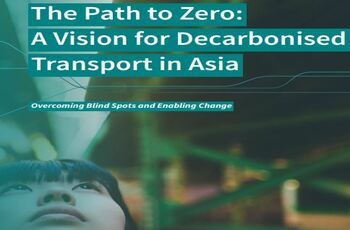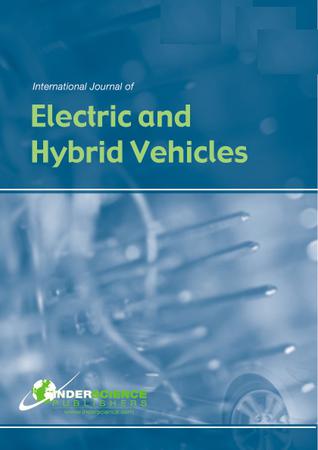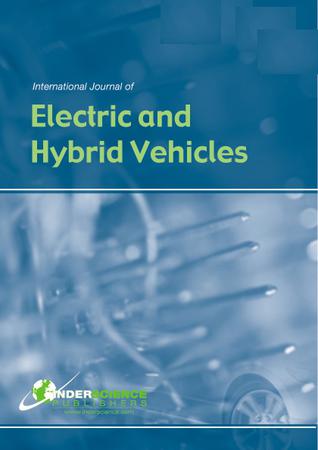Knowledge Hub
Evaluation of real-world vehicle emissions in Warsaw
2022
Author(s): Lee K, Bernard Y, Dallmann T, Tietge U, Pniewska I, Rintanen I
The Real Urban Emissions (TRUE) Initiative conducted an emissions testing study in Warsaw in Fall 2020 to provide detailed information about the real-world emissions of the vehicle fleet and support the city’s efforts to address poor air quality. The study analyzed over 220,000 measurements from 147,777 unique vehicles collected using remote sensing technology.
Heavy-duty emissions control tampering in Canada
2022
Author(s): Braun C, Badshah H, Hosseini V, Jin L, Miller J, Rodríguez M
Emission controls tampering in heavy-duty vehicles can have serious consequences for public health, warranting proactive regulatory action to eliminate such practices. This study provides a holistic assessment of the issues that motivate and facilitate tampering with the emission control systems of heavy-duty vehicles in Canada.
Charge, set, go! Electrifying urban transport in Germany and Poland
2021
Author(s): Wappelhorst S, Morrison K
The study highlights the status quo of policies influencing and framing the electrification and provides recommendations for municipalities in Poland and Germany on how to effectively support the electrification of urban mobility. As such, the study supports the discussions of the Polish-German Platform on Electromobility, where both countries jointly work toward their shared ambition of driving necessary change.
Remote sensing of motor vehicle emissions in Seoul
2022
Author(s): Yang L, Wu R, Bernard Y, Dallmann T, Tietge, U
This study analyzes the real-world emissions data collected by remote sensing in Seoul in 2019. The testing campaign was conducted at 11 sites, and the in-use emissions of more than 740,000 vehicles were measured. The sampled fleet was mostly comprised of light-duty passenger vehicles, including cars and vans.

The path to zero: a vision for decarbonised transport in Asia overcoming blind spots and enabling change
2022
Author(s): Council for Decarbonising Transport in Asia
The report advocates a vision for complete decarbonization of transport in Asia by mid-century.
State of research & development in electric vehicle battery technology
2022
Author(s): Phadke S, Mitra A, Sarkar T, Thacker H, Kumar P, Saini P
This report presents a snapshot of commercially available EV battery technologies today as well as the state of R&D in EV battery technologies. It also provides recommendations on how to strengthen industry–academia collaboration to pro mote uptake of these technologies.
Decarbonising transport in Latin American cities: a review of policies and key challenges
2022
Author(s): Paternina B J, Windisch E, Perkins S, Ito A, Leape J
The work presented in this report helps to understand better the challenges that Latin American cities face in terms of transport decarbonisation and beyond, based on the analysis of the three case study cities of Bogota, Buenos Aires and Mexico City.
The bottom line of electric cars: comparing the cost of ownership of electric and combustion-engine vehicles
2022
Author(s): Agora Verkehrswende
How do electric vehicles stack up against their conventional counterparts in terms of total cost of ownership for consumers? To answer this question, the study consulted the Car Cost Calculator of the German automobile club ADAC, a free online database that contains comprehensive cost data. The database covers all of the more than 8,000 models currently available in Germany. The analysis provides insight into the current cost competitiveness of electric vehicles in the German market. It also spotlight the effectiveness of current incentive measures and how they can be further developed to support the uptake of electric vehicles. The most important insight is that in many instances, electric vehicles are already a cost-competitive alternative.

Augmentation of Charging Infrastructure for Electric Vehicles Growth in India
2019
Author(s): Goswami R, Tripathi GC
This study aims to appraise the impact of different adoption rates of EVs on the additional power and charging infrastructure requirement. To achieve this goal, it plans to use electric cars (EVs) to the tune of 30% by 2030.

PMSM Control for Electric Vehicle Based on Fuzzy PI
2019
Author(s): Chen Q, Kang, S, Zeng L, Xiao Q, Zhou C, Wu M.
The mathematical model of permanent magnet synchronous motor (PMSM) in d-q reference frame is established, fuzzy PI speed controller is designed based on fuzzy control theory, and simulation models of PMSM based on fuzzy PI control theory and sliding mode control theory are built in this paper.



